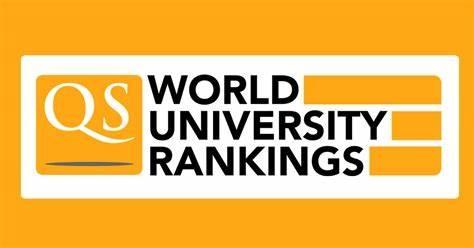
QS ranking 2024: better results for French institutions
The QS ranking 2024 of best universities worldwide has just been released, and there’s something new in this 20th edition. Universities were assessed using eight criteria, including three new: the international research network, employment outcomes and sustainability. And these changes seem favourable to France since most of French institutions win ranks. In total, 35 French institutions are included in the 1,500 institutions ranked.
Etabli depuis 20 ans par la société Quacquarelli Symonds, analyste britannique de l'enseignement supérieur international, le QS World University Ranking a évalué cette année près de 1500 institutions mondiales (1499 contre 1422 l’an dernier), implantés dans une centaine de pays.
Quatre établissements français dans le Top 100, 12 dans le Top 500
En proposant cette année une nouvelle méthodologie, QS affiche « la volonté de mettre l’accent sur les indicateurs d’employabilité et de durabilité qui viennent compléter son évaluation transversale des missions des établissements d’enseignement supérieur et de recherche ». Telle est l’opinion du ministère de l’enseignement supérieur français, constatant que le palmarès 2024 « valorise l’investissement des chercheurs et enseignants-chercheurs de 35 institutions françaises (trois de plus que l’an dernier) ».
On retrouve en effet dans le Top 100 l’habituel quatuor de tête français :
- l‘Université PSL (en 24e position, qui gagne 2 places et qui entre donc dans le Top 25). Elle conserve de ce fait, selon le ministère, son « rang de première université française » avec une 7e place européenne (+1) et une 24e place mondiale (+2) ;
- l’Institut Polytechnique de Paris (38e, +10 places) ;
- Sorbonne Université (59e, +1 place) ;
- Paris Saclay (71e).
Au-delà, dans le Top 500, suivent 12 autres établissements français situés en Ile-de-France mais aussi en région : l’Ecole Normale Supérieure de Lyon (184e), l’École des Ponts Paris Tech (192e ), l’Université Paris Cité (236e), l’Université Grenoble Alpes (294e), Sciences Po Paris (319e), l’Université Paris 1 – Panthéon Sorbonne (328e), l’Université de Montpellier (382e), Aix-Marseille Université (387e qui progresse de plus de 100 places), l’INSA de Lyon (392e), l’Université de Strasbourg (421e), l’Université Lyon 1 – Claude Bernard (452e) et l’Université de Bordeaux (465e).
A noter aussi l’entrée dans le ranking de trois nouveaux établissements : les universités de Franche Comté, de Limoges et de Sorbonne Paris Nord.
Une reconnaissance de la politique d’investissement de la France
La ministre de l’enseignement supérieur tient ainsi à féliciter les 35 établissements français classés dont « plus des deux tiers ont amélioré ou maintenu leur position par rapport à l’an dernier ». Pour la ministre, les « très bonnes performances des établissements français en termes de collaboration à l’international confortent la politique d’investissement de l’État en recherche sur le temps long, avec les programmes d’investissement de France 2030 ». Ces résultats montrent aussi, poursuit la ministre, « combien les leviers mis à disposition dans le cadre de la loi de programmation de la recherche sont essentiels pour la recherche française dans les années à venir ».
Selon QS, qui commente également ces résultats, les universités françaises montrent plusieurs bons points et notamment le fait que les universités ayant fusionnés « font preuve d’une excellence académique constante ». De même, QS salue la collaboration des établissements français en matière de recherche internationale, mais aussi des recherches à fort impact et largement citées et la « renommée importante » des établissements auprès d’employeurs internationaux.
Une méthodologie augmentée
Considéré comme l'un des trois classements des universités les plus importants au monde, avec celui du Time Higher Education et celui de Shanghai, le QS World University Ranking a adopté pour cette nouvelle édition une méthodologie construite autour de neuf indicateurs dont trois ont été introduits cette année : le réseau international de recherche (5%), l’employabilité (5%) et la durabilité (5%).
Les autres indicateurs sont restés les mêmes : la réputation académique (30%), les citations (20%), la réputation auprès des employeurs (15%), la proportion enseignants/étudiants (10%), l’importance du corps enseignant international (5%), le ratio étudiant Internationaux (5%),
Related contents
Recommended News



















































